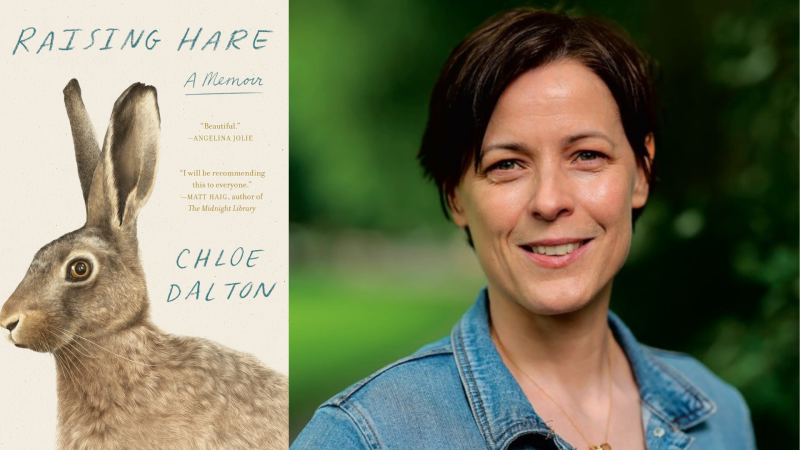A Wild Leveret’s Rescue and Refuge
On a dull, gray morning, Chloe Dalton’s usual stroll was interrupted by a dog barking and a man shouting. There, stranded on the gravel path, lay a little leveret—no more than a few days old. Though she’d spent her life in the city with minimal exposure to wildlife, an instinct to protect stirred in her chest. With the lightest touch—careful to avoid its fur—Dalton coaxed the tiny creature to safety, planning to keep it in her house until nightfall and then return it to the wild.
When she got home, she reached out to a wildlife rehabilitator. He told her that if its mother was gone, the leveret’s chances in human hands were grim. “I felt awful—mortified,” Dalton admits. “Here I was, a typical city dweller, trying to do the right thing—and realizing I might actually harm this little innocent creature. It might die because of me.”
But despite the odds, the hare survived, and an extraordinary bond began to form. Each night, it bounded through nearby woods and fields. Each morning, it returned to the safety of her home. By equating Dalton’s presence and her house with refuge—a trust few wild hares ever extend—it offered her a profoundly rare gift.
Learning About and from the Hare
Dalton learned about the hare’s behavior through close observation. She marveled at its meticulous self-grooming, the way it gently drummed its paws on soft surfaces, and how it padded through her home without leaving so much as a trace. “It turns out that almost everything that I was reading about hares turned out to be wrong,” she said.
Perhaps the greatest lesson came from the hare’s quiet presence. As she watched it settle into stillness, Dalton felt her own pulse slow and her mind soften. In those moments, she understood what it means to be fully present.
Coexisting with the hare grounded Dalton. She once “loved the way [she] was living” in perpetual motion. But, she says, she’s grateful to have been “shaken out of [her] habits,” to have rediscovered the rewards of slowing down and “being more in tune with [herself].”
She now treasures a “connection to a place through the seasons and the years.” She once believed that answers lay in the far-flung travels for her foreign-policy work. Now, she thinks that life’s richest rewards can be found just around the corner—or, in her case, at the end of the garden.
Reappraising Cultural Perceptions of Hares
Dalton’s intimate encounter with the leveret upended centuries of negative folklore—from medieval tales of “witchy” hares to modern dismissals of them as cowardly pests. It also raised a bigger question: if such dignity and care reside in a small, brown creature we habitually overlook, what other wonders might we be blind to?
Her own observations drive the point home. Contrary to the stereotype of the hare as an absentee parent, Dalton watched the hare courageously drive off a flock of crows attacking her young—an act of courage ancient lore never imagined.
Listeners’ Stories of Wild Animal Encounters
Listeners shared their stories of unexpected connections. A caller grieved a backyard toad she’d grown attached to, another fretted over a fawn she’d befriended before the Tubbs Fire swept through Santa Rosa. One listener described the thrill of a hare pausing beside her car, while others recounted rescues of hummingbirds, pelicans, nestlings, and even honeybees.
Each story underscores Dalton’s sense that humans can form “very deep, powerful attachments with animals.” She notes that care, tenderness, fascination, and curiosity run through every listener’s account—and that, above all, a shared desire to do no harm unites these encounters with the natural world.
Lessons for Navigating Uncertain Times
In closing, Dalton reflects on how her hare experience offsets anxiety over current events.
“Having worked a whole career in politics and thinking that’s where answers lie, I’ve been profoundly transformed by turning my gaze towards nature and the connections that it has brought me.” She finds optimism in “remembering where we come from, who we are, how we relate to each other in the natural world.”
This content was edited by the Forum production team but was generated with the help of AI.
